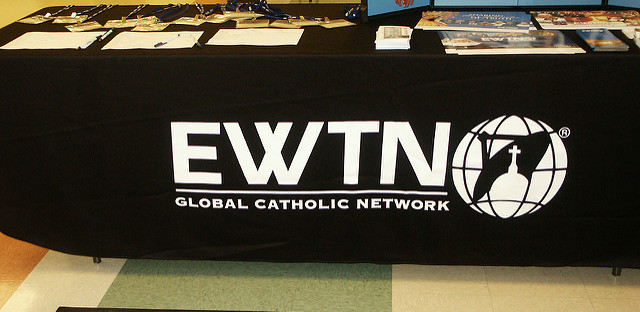
The recent U.S. presidential election has everyone thinking about the role of media and religion in political life. From fake news to mainstream media spectacle, both the left and the right have been criticizing American journalism. White evangelical Christians also overwhelmingly broke for Trump, despite concern that he was not particularly pious himself. The intersection of politics, media, and religion is clear, but what can research tell us about how they interact? Some of the best work suggests we can learn a lot by making an unexpected comparison: the role of religion and politics in the media in the United States and Africa.
First, political leaders across the globe use religious media in similar ways. Religious programming and discourse in the media creates new ways for people to use religion to signal their social status. Politicians in both the U.S. and countries like Nigeria have harnessed the power of these shows and their large audience numbers as a tool to publicly cultivate their spiritual image by integrating administrative goals with images of divine will.
- Ebenezer Obadare. 2006. “Pentecostal Presidency? The Lagos-Ibadan ‘Theocratic Class’ & the Muslim ‘Other’.” Review of African Political Economy 33(110): 665-678
- Stephen Ellis and Gerrie Ter Haar. 2007. “Religion and Politics: Taking African Epistemologies Seriously.” Journal of Modern African Studies 45(3): 385-401
- David Scott Domke and Kevin M. Coe. 2008. The God Strategy: How Religion Became a Political Weapon in America. Oxford, New York: Oxford University Press.
Second, religious leaders also use secular media outlets in similar ways. The political economy of the media both in Africa and the U.S. means that secular media organizations are willing to broadcast religious programs because they garner large audience numbers. Additionally, religious leaders embed themselves in the elite, administrative networks that run secular media outlets, political groups, and academic organizations to disseminate their messaging to both religious and non-religious audiences. This also means that religious media personalities are firmly ensconced in today’s globalized media and public culture that is characterized by a focus on media icons, spectacle, and a penchant for dramatization.
- Tamar Gordon and Mary Hancock. 2005. “‘The Crusade is the Vision’: Branding Charisma in Global Pentecostal Ministry.“ Material Religion 1(3): 386-404.
- Marleen De Witte. 2011. Business of the Spirit: Ghanaian Broadcast Media and the Commercial Exploitation of Pentecostalism. Journal of African Media Studies 3(2): 189-204.
- Michael Lindsay. 2008. Faith in the Halls of Power: How Evangelicals Joined the American Elite. Oxford, New York: Oxford University Press.
Studying media as a central category across different international cases provides fresh perspectives on religion, citizenship, authority, and political engagement.
- Rosalind Hackett, Anne Mélice, Steven Van Wolputte and Katrien Pype. 2014. “Interview: Rosalind Hackett Reflects on Religious Media in Africa.” Social Compass 16(1): 67-72.
- Stewart Hoover. 2011. “Media and the Imagination of Religion in Contemporary Global Culture.” European Journal of Cultural Studies 14(6): 610-625.

Comments